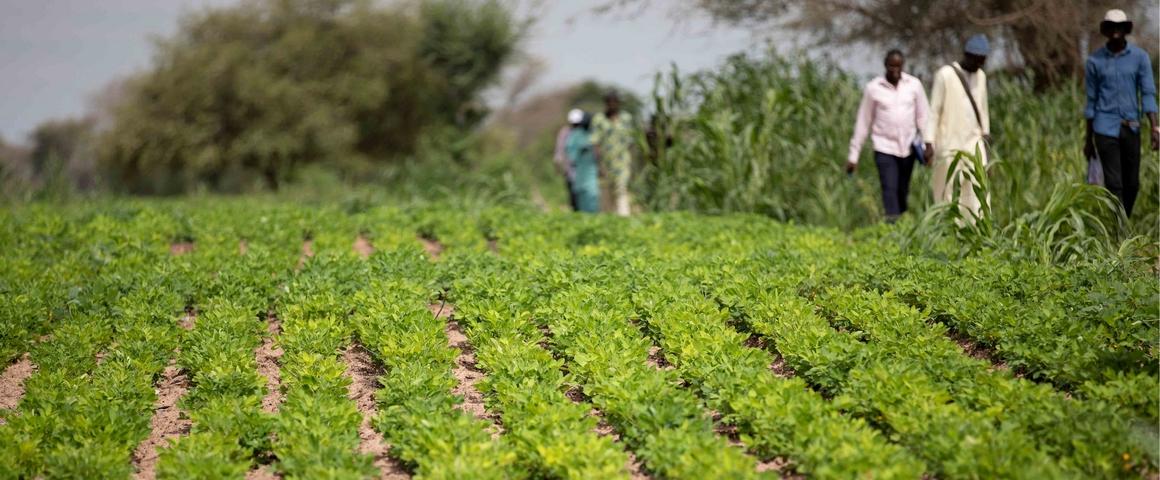Results & impact 10 October 2025
- Home
- Press area
- Press releases
- Benefits of legumes in crops
Legumes increase crop yields by more than 20%

Groundnut field in Ndiob (Senegal). In Senegal, groundnuts (legume) are generally cultivated in rotation with millet or sorghum © R. Belmin, CIRAD
A high level of crop biodiversity is associated with numerous ecosystem services, such as resilience to pests and diseases, and improved soil fertility. The use of legumes within these diversified systems also improves yields of the main crops, as has just been shown by a team of scientists from the China Agricultural University, Aarhus University in Denmark, CIRAD, the University of Western Australia and the University of Aberdeen in the United Kingdom.
According to Damien Beillouin, a researcher at CIRAD specialising in agricultural data analysis, and co-author of the study: “91% of the observations analysed concerned cereal crops: rice, wheat and maize. For these cash crops, a 20% increase in yields is significant”.
Nitrogen fertilisation and crop diversification
Beyond this average increase, two main factors influence yield improvements linked to legumes: the use of nitrogen inputs and the degree of crop diversity in agricultural systems. According to the researchers, the advantage of legumes declines with increasing use of chemical nitrogen fertilisers. “Legumes fix atmospheric nitrogen in the soil”, says Damien Beillouin, “so where high levels of nitrogen inputs are already used, this advantage has less impact”.
Yield increases also decline for the most diversified cropping systems. They nevertheless remain substantial even in the case of highly diversified rotations. This shows that legumes provide specific benefits to crops. According to Huadong Zang, an associate professor from China Agricultural University specialising in diversified cropping, and corresponding author of the study: “these benefits are undoubtedly linked to the effects of breaking disease and pathogen cycles, as well as to the input of nitrogen to soils through symbiotic fixation, which ultimately reduce stressors”.
Africa is the continent with the most to gain
Legumes increase yields, especially in low-input conditions. Organic farming would therefore benefit greatly from the introduction of legumes, as would the African continent. According to the study, across the 844 field observations analysed in Africa, legumes increased yields by 43% on average. By way of comparison, the average gain observed in Europe was only 15% across 1 414 observations.
This research builds on a previous meta-analysis of the global impacts of five major crop diversification systems on agricultural productivity, observed across more than 50 000 experiments throughout the world.
Reference
Zhao, J., Chen, J., Beillouin, D. et al. 2022. Global systematic review with meta-analysis reveals yield advantage of legume-based rotations and its drivers. Nature Communications.



























